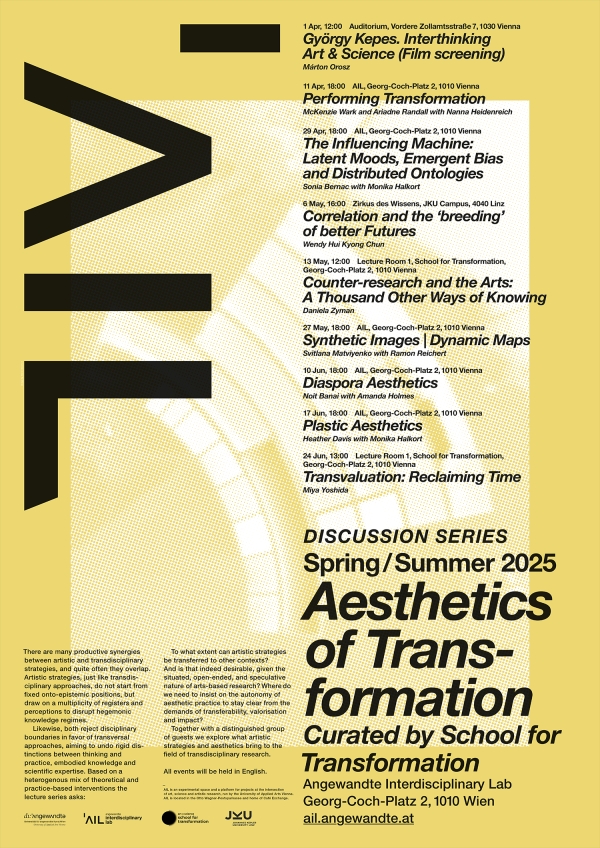Part of the lecture series ‘Aesthetics of Transformation’,
curated by the School for Transformation
This talk examines the problem of synthetic emergence:
how AI generators, even when guided by loosely defined objectives, tend to produce commonsensical associations, aesthetic
stereotypes, and familiar patterns of meaning.
Rather than enabling radical experimentation, these systems
often resolve into a “canny valley” — a zone of overfamiliar coherence. Though bias, synthetic “moods,” and aesthetics are
not embedded in advance but emerge through systemic operations, their emergence is frequently steered toward a telos of the
familiar. Without reducing the issue to flawed datasets or dismissing AI as a merely regurgitative “stochastic parrot,” the
talk explores the potential of synthetic intelligence and AI media generators as instruments of poietic praxis — requiring
careful attunement to the novel patterns that arise through their experimentation. It emphasises the importance of distinguishing
between different forms of the unknown within these systems, particularly the differences between randomness, undecidability,
and noncomputability — each implying distinct artistic strategies. The ideas presented are practice-led, discussed through
the experimental architecture of Polymorphs — a collaborative series of artworks and a complex generative AI system developed
at the Artificial and Distributed Intelligence Lab, Royal College of Art, London.
Sonia Bernac is
an artist, writer, and technologist. Her research investigates the ontological tensions of old and new materialisms, synthetic
teratologies, intuitions of science-fiction, and pre-Enlightenment systems of knowledge. Framed as a bestiary of distributed
intelligence, her work makes sense of hallucinations in generative AI, latent spaces, and emergent moods within synthetic
environments. Without equating the non-human with the inhumane, she pays particular attention to the emergence of pathological
systemic formations – exclusionary, compulsive, or sadistic imaginaries. Most recently, she was a senior researcher at Antikythera
and the Artificial and Distributed Intelligence Lab at the Royal College of Art.
Monika Halkort is
assistant professor and head of the Art x Science School for Transformation at the University of Applied Arts Vienna.
Her research and teaching focus on the political ecology of transformation processes, emphasising, in particular, the role
of bio/geo-chemical substances and materials in mediating historical (in)justice and change.
School
for TransformationAIL



